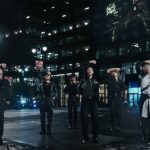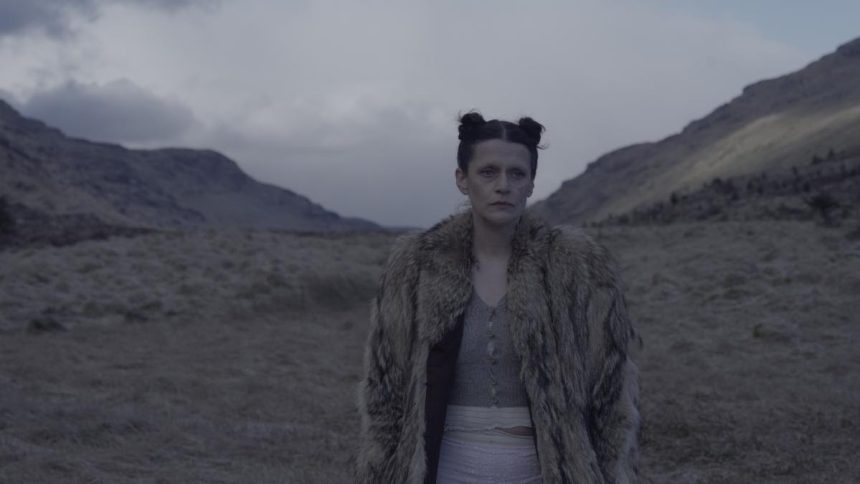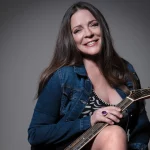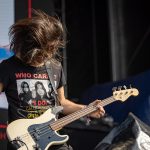Sarah Assbring, the sole member of Swedish musical project El Perro del Mar, doesn’t shy away from darkness. Rather, it intrigues and soothes her — especially in the form of music. She describes melancholic sound as a place to go to, for relief and respite, and perhaps, spiritual salvation. While each of Assbring’s enigmatic albums have showcased shapeshifting new sounds, the throughline has always remained an incredibly analytical air of melancholia. There are no tropes in the work of El Perro del Mar — no sense of sorrow just to be sorrowful.
Read more: 24 of the most exciting rising artists to watch in 2024
As for many of us, darker music had embraced Assbring at low points throughout her life, offering comfort, company, and salvation from solitude. And in an act of kismet, the project itself came to her at a similar bottom, and cracked something new and creative wide open. With each album, Assbring has approached the process with questions, pensiveness, and an understanding of her own needs in that moment. Thus, her music is an incredible, uncomfortably human experience, for both listeners and the artist herself. On Big Anonymous, she’s digging deeper, unleashing more discomfort, in speaking to themes of death and spirituality, and thereby offering the same embrace and company she once sought from sorrowful music herself.
I don’t know if this is starting at the beginning of the story or somewhere else, but I’d love to begin by asking you about the origins of your artist’s name.
That’s an old story by now, but for some reason, it still means a lot to me. It’s strange that it still does, but somehow I was right when I decided to use it. It came about during a time in my life when I was quite lost and had an existential and creative crisis. I was aimlessly trying to get away somewhere, and I happened to go to a Spanish island — and not in a romantic way at all, because I was really at a loss, and I really just had to flee somewhere. I ended up sitting by the ocean and staring out in the blue and just wondering, basically, what I was going to do with my life.
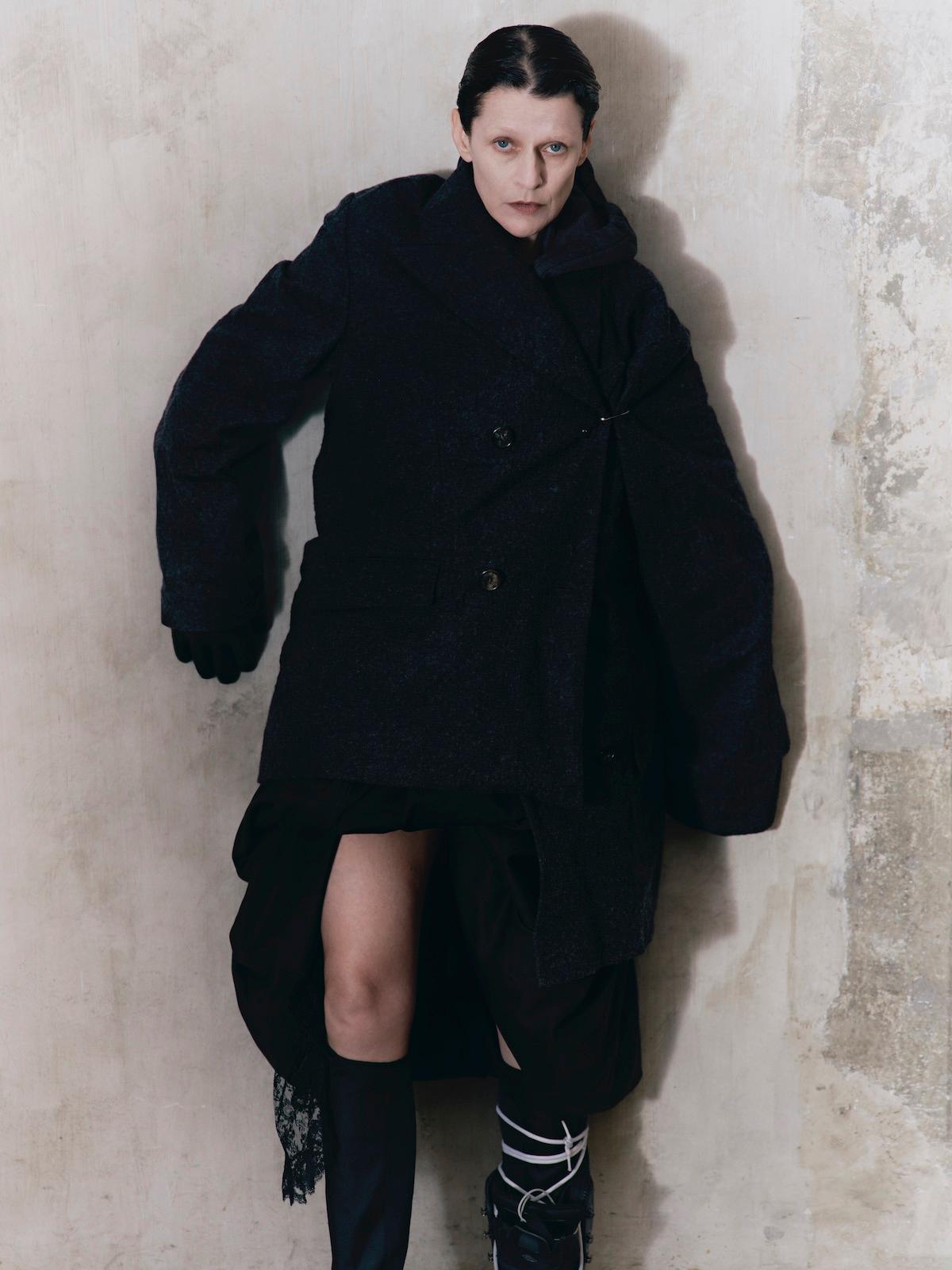
While doing that, this stray, very cute little dog came up to me. You could easily see that it was a stray dog, but it had some kind of natural pride in it, and it sat down by me. That was a really, really emotionally strong moment for me. And I started calling it El Perro del Mar with the little Spanish that I knew. Every time it came up to me, “Hi, El Perro del Mar.” And slowly, while I was there, I started writing again. I had had this void in me for such a long time, like a creative void.
Soon thereafter, I came back to Sweden again, and I started writing what then came to be the first songs that ended up on my debut album. I realized that I was making music again — and I understood that I had to call it El Perro del Mar, because I knew that if I were to make music again, it has to come from that place within me that is very pure, not corrupted, and honest. I wanted to keep holding onto that place, even though it was a very depressing place from the beginning — at the turning point, I knew that I had learned something really important. It had to do with that meeting somehow. So, that’s the story, and it’s still important to me. I keep doing these reevaluation things in my life every time I make a new album — it’s kind of going back to that moment, to somehow not lose track of myself and what I do.
That’s super powerful. That level of authenticity, and never shying away from darkness or honesty, has definitely shown up in your music, regardless of the album. Would you say El Perro del Mar and Sarah are one and the same? Or is it an alter ego?
It’s an interesting question. Even for me, I don’t know if there is a difference really, but more than just a persona, it feels more like it’s a place, a place where I can go and be that honest, which is not easy in an everyday situation or just us being Sarah. I knew, and I still feel like, I would never go by my own name. I guess that says a lot. I feel more free to be within my artistry as El Perro del Mar. It’s easier than being myself.
What would you say from an early age has been your relationship to music, and how has that changed up through this album that you’re about to put out? It’s a big question.
It’s even an interesting question for myself to ask at this point in my life, because it changes all the time. Growing up — and when I think about it, sometimes I get a little bit sad — music was the absolute. I just knew that it was a place where I could go and where I could be given certain powers, of being or feeling extremely free and very, very happy. Especially happy when it came to melancholy music, which is the reason why I do this music. I understood at a really early age that I’m super drawn to melancholy music.
For me, music is a place. It’s like a state of mind, which is really vivid and clear to me. I started writing music and my own songs when I was really small, and I knew quite early on that music was the most important thing for me because there was nothing that I could lose myself as much in as music. And there was nothing that could make me feel as good as being inside music or making music or singing in choirs — which I did a lot when I was younger and so on. But throughout the years, I’ve had a difficult, destructive relationship to music where I was really set on being a musician or being an artist, and I wasn’t really going about it in the right kind of way.
That was the reason why I had to do this breakup thing and just ask myself what it is that I really want to do with my life and how am I going to do it. How am I going to keep achieving this dream that I have, and can I be me if I do it, or do I have to be someone else? I came to understand that I have to do it in a way that is loving towards myself and not destructive because then, it’s going to kill me instead of making me happy.
From there, it was more of an existential process — I have to make this music in order to survive. That’s why it’s important to reevaluate why I do music, and what it is to me. I have another kind of relationship to music today than I used to do, and there is a burden involved in it.
I have to put myself in a place where I am still making my debut album. I have to start from the beginning. In some senses, it’s a destructive process, but what’s different now is that I have all this experience, and there is something that I can lean back on. With all these years of experience, in the back of my head, I know that it will come back to me. It’s destructive and secure. And there is a voice that will come to me in the end. So, to be able to put it in a concise way, music is a mystery to me still, and I’m really glad that it is.
That’s definitely something to hold onto.
That is a key thing for me — to put myself in the place where the mystery is, to explore it and explore myself within it. That’s also the reason why my music sounds the way it does and why it perhaps changes to my listeners.
In the past, I saw that you’d called your music very thematic, and I was wondering what you would say the theme for Big Anonymous is.
The album is about death, and it’s about loss. It’s about mourning, and the process of mourning a person that’s gone. It’s also about realizing what death is. I really wanted to put words and music to a grieving state.
A heavy endeavor. Who would you say that you make your music for?
I always make my music for myself first. To say anything else would be not true. And it’s still kind of the same, going back to the debut album, as it was then. I still initially always write my music for something I’m in need of — I need to be comforted; I need to be told the truth; I need to be taught something. In the end, for me, I think it’s the best way to become universal. I think the urgency in my music would be lost if I were to work differently.

I agree that, ironically, focusing on personal and introspective ends up being much more relatable. What’s your songwriting process?
I work from words, and words usually have a very clear sentence that I feel can contain a song. Then from that sentence comes a melody, and I usually just feel it instantly. I feel if it’s a slow one or if it’s a fast one, or if it’s a super melancholy song, and then from that sentence, I know the course, the lyrics to the course, or the lyrics to the verse immediately.
It’s instinctual.
Yes, usually. But it’s not always like that, of course. When it works the quickest and the absolute most intuitively in the best kind of way, it’s like that.
Do you consider yourself a spiritual person?
No, I don’t. I ask myself what it is about me that has this incapability of being spiritual, and I am yet to find out. I’m hoping that the older I get, I will get there because I am definitely, and I’ve always been on a search for something, but it’s not within me. I guess the closest thing I could come to is music.
Yeah, I mean, it sounded like something spiritual when you described your early experiences with music as almost out of body.
When I was at my absolute lowest, about a year before I started writing the music that came about to be my first album, I was so desperately in need for music. It felt like I had a physical need for music. So I started singing in this church choir, and I felt like I was a little, dark force that came into this room with all these bright, blond girls singing really beautifully. They were probably quite religious, I think. I don’t know if I was in need of a God, but I was definitely in need of being saved — and I was saved, but I was saved by the music, and the idea that a person of flesh and blood wrote this music. And that was all I needed, really. Being a part of a choir is probably one of the absolute best things if you’re in need of comfort or just in any kind of desperate, desperate state.
There’s definitely something “higher” there, whether it’s God or music or the choir itself. Then again, does the label even matter? I also hear this awareness of something else out there, and perhaps a desire to seek that. And that, the quest of it all, to me, sounds incredibly spiritual.
It’s a little bit of an enigma within myself. And Big Anonymous is very much about spirituality. It really is.
It’s interesting how full circle it all becomes. Everything you’ve talked about ties back into that dog, reaffirms why “El Perro del Mar” is so perennial — of a name, and a question. One of those questions that might never be solved, or answered, and any conclusions that might come about are ever-changing. It’s all so mysterious.
Absolutely. And that is also a really big, and quite correct way, to describe Big Anonymous. Though things don’t get solved, the key to it all is communication. That’s what it comes down to in the end. For the album, I had to write about saying the things that were never said, to talk about secrets, and bring secrets into light. I had to write about the release that you have when words are spoken and fears are being faced. That’s why it had to be so dark — it was the only way to reach that cathartic place. But then again, in the end, maybe nothing was solved, or no questions were maybe answered, really. Maybe they will never be. It’s all about the conversation.




